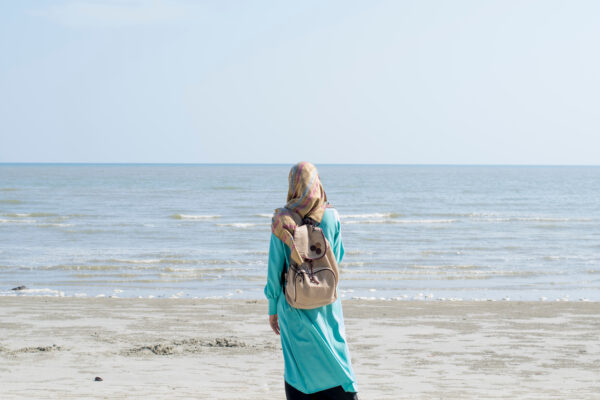Marriage has now indisputably evolved into one of the most challenging chapters of our lives.
Marriage has now indisputably evolved into one of the most challenging chapters of our lives.
The Holy Quran encouraged marriage as a medium through which Muslims were recommended to find tranquillity and completion of their faith, and it has now indisputably evolved into one of the most challenging chapters of our lives. The challenges facing us are not because the status of this institution has changed from an Islamic sense, but rather our approach and understanding of it has changed. It has become a word that evokes some of the most polarizing sentiments given the many aspects of our lives it touches. To add to the complexity, Muslims are now trying to find ways to reconcile generational differences, the effects of social media, managing personal, family and community expectations, all while trying to strike a balance between emotions, logic, and frankly, what is practical. Most notably, however, and the crux of what I find intriguing, is the one aspect of the institution of marriage that has changed perhaps most significantly. This one element has particularly had a profound impact on how we view our roles, our approach, our expectations of a suitable spouse, and has largely to do with an aspect that is not as often discussed: that is, the effect of changing gender dynamics on Muslim spouse selection.
Rights vs. Responsibilities
All of us growing up have a treasure trove of stories to share, involving the coming of age and suddenly appearing on the mosque’s ‘rishta-aunty’ radar, who in good fashion, can be spotted at any centre, bee-lining it over to the ‘singles’ circles, well-intentionally and unabashedly, to make a pitch about the ‘perfect candidate’ that they have in mind. God bless the rishta-aunties for their efforts, but perhaps what would be most helpful is starting a conversation on what should be on every person’s non-negotiables list when selecting a spouse. On this list, first and foremost should be the importance of finding someone who approaches marriages not just by asking, ‘what are my rights’, but rather by asking, ‘what are my responsibilities?’
Allah (swt) in the Holy Quran, chooses to refer to the notion of having love and mercy on your spouse over all the aspects of marriage when He says,
“And one of His signs is that He has created for you, spouses from amongst yourselves so that you might take comfort in them and He has placed between you, love and mercy. In this there is surely evidence (of the truth) for the people who carefully think.”
Surah 30, Verse 21
From a vantage point of being someone who tries to assist people wanting to get married in our communities, I can safely say that this shift in perspective is vital. Rather than approaching marriage from a rights-based perspective, why not try and approach it from the lens of mercy and compassion, by ensuring that we can first fulfil our duties before listing the things that we believe are within the purview of our rights as women or men in a marriage? In doing so, perhaps, we can start by asking ourselves ‘what can I bring to the table?’, as opposed to, ‘I as a woman, am entitled and will keep what earn from work’, or, ‘I will get paid for house-work and child rearing’, or ‘I will ask for an exorbitant dowry’ (that will likely cripple my spouse from the get-go), and of course, the classic ‘I want a hundred-thousand-dollar wedding that is within my right’ but of course, unnecessary.
Similarly, men can begin by asking themselves, ‘what can I bring to the table?’, rather than, ‘I will ask for a spouse that looks beautiful, composed, low-maintenance, is a great cook, wants to live with my parents, and raise five children, with no complaints’. While some of the items mentioned may be within our rights, it will put a strain on a marriage if exercised as though we’re enforcing city parking by-laws, and ultimately, potentially push it to the brink of divorce. If both men and women began to shift their way of thinking towards ‘what can I do to make this marriage work’ and having mercy and compassion (beyond the cheesy Notebook rendition of compassion), towards their spouses, there is at minimum, a higher likelihood that the marriage can start off on the right foot and hopefully, survive with some degree of bliss.
Times are changing
The second aspect of the changing gender dynamics that I’ve noticed through my work in assisting people in the community get married, is the evident markers that times are changing. Perhaps some didn’t get the memo, but most women are not satisfied being married to ‘The Doctor’ anymore. Rather they want to be the doctor themselves! A note to brothers: listing that you are indifferent towards a woman’s level of education while you’ve attended an ivy league school yourself is not viewed as being ‘forgiving’, rather women are markedly looking for a partner who wishes for them to have the space and support to reach for and attain educational, career and other goals that are important to them.
Along with this identifier of changing times is the shift that is occurring, albeit at snail’s pace, whereby women are taking the initiative to propose, within the framework of what is permissible in Islam, to their choice of spouse. Our communities need to understand that while women might be defying culturally prescribed traditions, Islamically, it is permissible and frankly, probably wise, since it is one of the most impactful decisions we as human beings make during our lifetime. Who better to sit at the helm of this decision-making process than you, yourself?
Gender-based expectations
Lastly, an aspect of the effect of changing gender dynamics on Muslim marriages that warrants discussion is the indoctrination of culturally prescribed ‘necessities’ for men and women that I refer to as the culture of aesthetics. How often have we heard, ‘he’s handsome, rich, educated and good family’ or ‘she’s pretty, good with children and/or elders, smart, great cook’. While I don’t suggest some of these characteristics aren’t good to have, what I am suggesting is that we should, at lightening-pace, be moving away from describing or looking for spouses based on such superficial understandings of what a suitable spouse is. How often do we highlight someone’s excellent communication skills? Because I’ll tell you that good or bad communication can make the world’s difference in a marriage. How often do we ask, ‘are they easy-going?’, because when you make mistakes and when life throws you curve balls, you’ll need someone who has a positive outlook and will approach the problem as a storm that they want to weather alongside you, rather than stand by and watch you sink. Most importantly, how often do we inquire about a potential partner’s faith beyond the aesthetics of what we see on the exterior? I can recount the number of conversations I have had with people about the importance of relocating, career, looks, skin colour, finances, education and an on-going list of qualities that, while (some are) important to consider, are nowhere near the importance that should be attributed to faith and whether their degree of submission to Islam is in fact, something they both consider as valuable and unmatched. It is these qualities that I believe should be the focal point, marking the much-needed shift in gender and cultural dynamics of Muslim marriages that are conducive to building a life together beyond what the culture of aesthetics dictates.
It has been a life-changing experience being fortunate enough to experience the pursuit of suitable spouses amongst community members for me and the takeaways I’ve mentioned are some of the challenges I’ve noticed in the years that I’ve been involved. However, one thing I’ve noticed, and perhaps the most significant experience thus far, is that while each community, each country and each culture may have its traditions with respect to the gender dynamics of Muslim marriages, the most comprehensive, holistic and healthy approach is by far, a return to the foundational understandings of marriage as outlined throughout the Holy Quran, and as evident in the lives of the Holy Prophet, his progeny and their righteous companions as the purest, most unadulterated manifestations of what marriage can do for the human soul.
This post was part of ‘Marriage Season’ brought to you by The Muslim Vibe and muzmatch. The muzmatch app is where Single Muslims meet. With over 350,000 members, over 10,000 people have found their partner on muzmatch with weddings taking place around the world! Quality profiles, advanced filters, photo privacy, and cutting-edge security make it easy to help you find the ONE.





